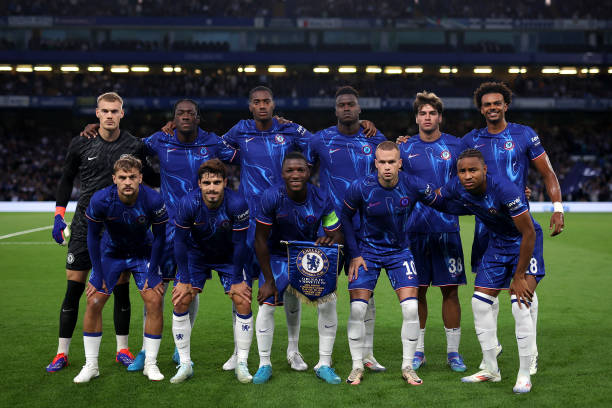Chelsea has found itself at the center of a storm with its oversized squad drawing fierce criticism from pundits and fans alike. Accusations of “recruiting badly” have been hurled at the club, with many questioning the logic behind a roster boasting 42 first-team players, many of whom have been conspicuously absent from training sessions.
Enzo Maresca, the latest manager to take on the daunting task at Stamford Bridge, has faced a barrage of questions regarding the futures of several high-profile players during his brief two-month tenure. The omission of Raheem Sterling, one of the club’s marquee names, from the squad in their recent 2-0 defeat to Manchester City only fueled the fire. Some have seen Sterling’s exclusion as a symbol of the club’s disarray and uncertainty.
The departure of England midfielder Conor Gallagher to Atletico Madrid—a move that has sparked outrage among some sections of the fanbase—further underscores the sense of instability at Chelsea. Gallagher’s exit, along with the impending loan move of Armando Broja to Ipswich, has left many questioning whether the club is recklessly discarding its academy talent in favor of a scattergun approach to recruitment.
Defenders Ben Chilwell, Axel Disasi, and Trevoh Chalobah, as well as midfielder Carney Chukwuemeka, are just a few of the players facing uncertain futures at the club. Disasi was briefly brought back into the fold for the UEFA Conference League play-off win against Servette, but the rest remain in limbo, casting doubt on their roles in Maresca’s plans.
Despite this turmoil, Chelsea has continued to be the Premier League’s most active player in the transfer market, bringing in 11 new signings. The most recent of these is the £45 million acquisition of Joao Felix from Atletico Madrid, a move that has only heightened concerns about the club’s transfer strategy. Critics argue that Chelsea is stockpiling players without a clear plan, leading to a bloated squad and a potential talent drain from its once-famed academy.
Much of the criticism has been directed at chairman Todd Boehly, though insiders suggest that co-owner Behdad Eghbali is the real driving force behind the club’s transfer dealings. The American consortium that purchased Chelsea in 2022 has certainly not been shy about splashing the cash, with an eye-watering £1.5 billion spent on young talent from across the globe. However, the strategy has left the club in a precarious position, with a squad in desperate need of trimming and a wage bill that, despite claims of a 50% reduction, still raises eyebrows.
Maresca has attempted to manage the oversized squad by dividing it into two groups: the core first-team players and a separate ‘loan group,’ colloquially referred to as the ‘bomb squad’ in the media. This latter group, led by loan technical coach Carlo Cudicini, trains separately from the first team, a tactic designed to maintain focus among the key players while keeping the disgruntled outcasts at bay.
Yet, this approach has done little to silence the critics who see Chelsea’s current predicament as a symptom of a deeper malaise. The club’s financial strategy, which hinges on long contracts and comparatively low wages, is seen as a gamble—one that could either pay off handsomely or lead to disaster. With the Premier League’s stringent profit and sustainability rules looming large, Chelsea’s ability to stay compliant while navigating this tumultuous period is under intense scrutiny.
At the heart of the matter is a simple, uncomfortable truth: Chelsea has spent lavishly but has yet to win a trophy under the new ownership. The chaotic restructuring, multiple managerial changes, and a lack of on-field success have led to growing doubts about the club’s direction. While the Blues may still harbor ambitions of returning to the Champions League and lifting silverware under Maresca, the path ahead is fraught with uncertainty.
As the transfer window inches closer to its end, Chelsea’s strategy will be tested like never before. Whether the club’s bold, if not reckless, approach will ultimately pay dividends or leave it stranded in mediocrity remains to be seen.





